-
 bitcoin
bitcoin $87959.907984 USD
1.34% -
 ethereum
ethereum $2920.497338 USD
3.04% -
 tether
tether $0.999775 USD
0.00% -
 xrp
xrp $2.237324 USD
8.12% -
 bnb
bnb $860.243768 USD
0.90% -
 solana
solana $138.089498 USD
5.43% -
 usd-coin
usd-coin $0.999807 USD
0.01% -
 tron
tron $0.272801 USD
-1.53% -
 dogecoin
dogecoin $0.150904 USD
2.96% -
 cardano
cardano $0.421635 USD
1.97% -
 hyperliquid
hyperliquid $32.152445 USD
2.23% -
 bitcoin-cash
bitcoin-cash $533.301069 USD
-1.94% -
 chainlink
chainlink $12.953417 USD
2.68% -
 unus-sed-leo
unus-sed-leo $9.535951 USD
0.73% -
 zcash
zcash $521.483386 USD
-2.87%
What should I do if the long arrangement of the moving average is destroyed? Is the trend over?
A broken long arrangement in crypto signals potential trend weakness, but confirmation through volume, price action, and momentum indicators is crucial before assuming a reversal.
Jun 19, 2025 at 11:14 pm
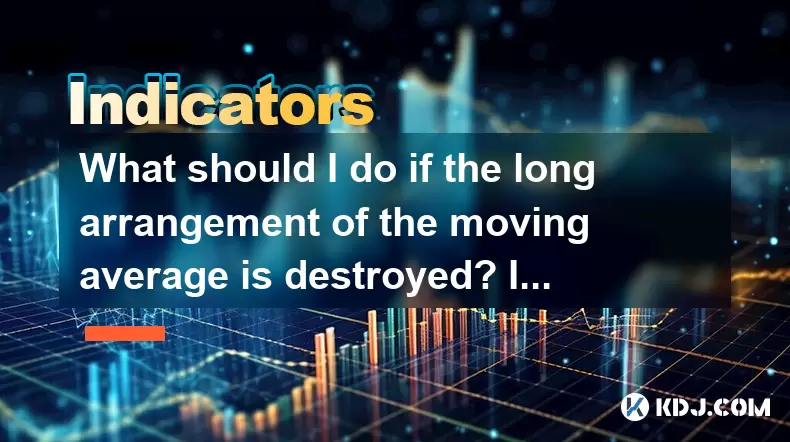
Understanding the Long Arrangement of Moving Averages
The long arrangement, also known as the Golden Cross alignment, refers to a specific sequence of multiple moving averages (MAs) stacked in ascending order from the shortest time frame to the longest. For instance, a typical long arrangement might consist of the 10-day, 20-day, 50-day, and 200-day MAs arranged so that each shorter-term MA is above the next longer-term one. This setup signals a strong bullish trend in cryptocurrency markets.
When traders refer to the long arrangement being 'destroyed,' they usually mean that this sequential stacking has been disrupted—either through crossovers or a compression of the moving averages. This often raises concerns about whether the prevailing uptrend is ending or if it's just a temporary retracement.
Important: The destruction of a long arrangement doesn't automatically signal the end of a trend. It may indicate a weakening momentum or a consolidation phase.
What Causes the Long Arrangement to Break?
Several market conditions can lead to the breakdown of a long arrangement:
- Market corrections: Temporary pullbacks after extended rallies.
- Volume spikes: Sudden surges in selling pressure can cause short-term MAs to dip below longer ones.
- News events: Regulatory changes, exchange outages, or macroeconomic news can trigger volatility.
- Profit-taking: Traders closing positions after significant gains can reduce upward momentum.
These factors can cause key moving averages like the 50-day or 20-day to cross below their longer counterparts, thereby breaking the long arrangement.
Important: Always analyze volume and price action alongside moving average behavior to avoid false signals.
How to Confirm If the Trend Is Truly Over
Before concluding that the bullish trend has ended, consider the following indicators and actions:
- Price closes below the 200-day MA: This is often seen as a bearish sign, especially if sustained over several days.
- Crossover of key MAs: For example, the 50-day crossing below the 200-day MA (a bearish death cross).
- Divergence with momentum indicators: Tools like RSI or MACD can show whether momentum supports the broken MA structure.
- Volume patterns: A sharp increase in volume during a drop may suggest institutional selling.
Traders should not rely solely on moving average arrangements but instead combine them with other tools for confirmation.
Important: No single indicator should be used in isolation; always seek confluence between different technical signals.
Steps to Take When the Long Arrangement Is Broken
If you notice the long arrangement has been destroyed, follow these steps:
- Reassess your position size: Consider reducing exposure or tightening stop-loss levels.
- Check for support zones: Look at previous resistance-turned-support levels or Fibonacci retracements.
- Review chart patterns: Identify whether the price is forming a flag, triangle, or head-and-shoulders pattern.
- Monitor trading volume: Determine if the sell-off is aggressive or merely a pause.
- Evaluate alternative time frames: Check the weekly and daily charts to see if the breakdown is consistent across both.
Each of these steps helps determine whether the trend is reversing or merely pausing before continuing.
How to Protect Your Portfolio During MA Breakdowns
To safeguard investments when moving average alignments are broken:
- Use trailing stops: These allow profits to run while protecting against sudden reversals.
- Hedge with stablecoins or inverse tokens: Holding USDT or using short BTC/ETH tokens can offset downside risk.
- Diversify across assets: Don’t put all capital into one cryptocurrency; spread across sectors like DeFi, Layer 1s, and NFTs.
- Set alerts on key MAs: Use platforms like TradingView to receive notifications when important levels are breached.
- Maintain emotional discipline: Avoid panic selling based on a single indicator flip.
By preparing in advance, investors can manage risk more effectively during volatile periods.
Important: Emotional decisions during MA breakdowns can lead to unnecessary losses.
Alternative Strategies After the Long Arrangement Is Gone
Once the long arrangement is no longer intact, consider the following strategies:
- Range trading: If the price stabilizes between two boundaries, look for opportunities near support and resistance.
- Mean reversion plays: Use oscillators like RSI or Bollinger Bands to identify oversold conditions.
- Wait for a new setup: Be patient until a fresh trend emerges with clear direction and volume support.
- Switch to lower time frames: Day traders can still find opportunities even if the larger trend is unclear.
- Focus on leading altcoins: Some cryptocurrencies may continue to perform well despite broader market weakness.
These approaches help maintain trading activity without forcing trades during uncertain times.
Frequently Asked Questions
Q: Can a broken long arrangement ever re-form?Yes, after a correction or consolidation period, the moving averages can re-align in the original upward sequence if the trend resumes.
Q: Should I close my entire position if the long arrangement breaks?Not necessarily. Evaluate the broader context and adjust position size rather than exiting entirely unless there's strong reversal evidence.
Q: Are certain moving average combinations better for tracking trends in crypto?Many traders use combinations like the 10, 20, 50, and 200-day MAs, but some prefer exponential moving averages (EMAs) for faster responses to price changes.
Q: How reliable are moving averages in highly volatile crypto markets?While moving averages can lag in fast-moving environments, they remain useful when combined with volume and momentum indicators.
Disclaimer:info@kdj.com
The information provided is not trading advice. kdj.com does not assume any responsibility for any investments made based on the information provided in this article. Cryptocurrencies are highly volatile and it is highly recommended that you invest with caution after thorough research!
If you believe that the content used on this website infringes your copyright, please contact us immediately (info@kdj.com) and we will delete it promptly.
- Bitcoin's Rocky Road: Inflation Surges, Rate Cut Hopes Fade, and the Digital Gold Debate Heats Up
- 2026-02-01 09:40:02
- Bitcoin Shows Cheaper Data Signals, Analysts Eyeing Gold Rotation
- 2026-02-01 07:40:02
- Bitcoin's Latest Tumble: Is This the Ultimate 'Buy the Dip' Signal for Crypto?
- 2026-02-01 07:35:01
- Big Apple Crypto Blues: Bitcoin and Ethereum Stumble as $500 Billion Vanishes Amid Macroeconomic Whirlwind
- 2026-02-01 07:35:01
- Michael Wrubel Crowns IPO Genie as the Next Big Presale: A New Era for Early-Stage Investments Hits the Blockchain
- 2026-02-01 07:30:02
- XRP, Ripple, Support Level: Navigating the Urban Jungle of Crypto Volatility
- 2026-02-01 06:35:01
Related knowledge
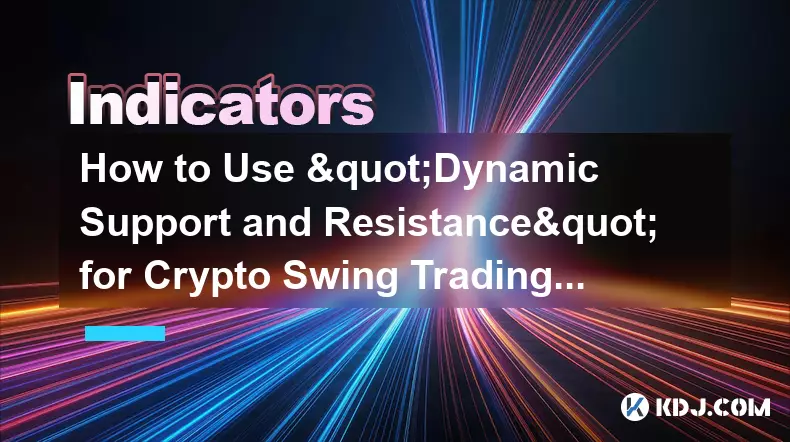
How to Use "Dynamic Support and Resistance" for Crypto Swing Trading? (EMA)
Feb 01,2026 at 12:20am
Understanding Dynamic Support and Resistance in Crypto Markets1. Dynamic support and resistance levels shift over time based on price action and movin...
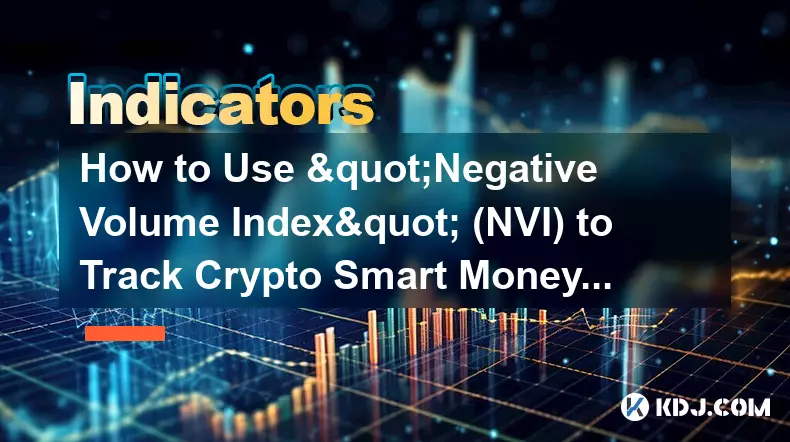
How to Use "Negative Volume Index" (NVI) to Track Crypto Smart Money? (Pro)
Feb 01,2026 at 02:40am
Understanding NVI Mechanics in Crypto Markets1. NVI calculates cumulative price change only on days when trading volume decreases compared to the prio...
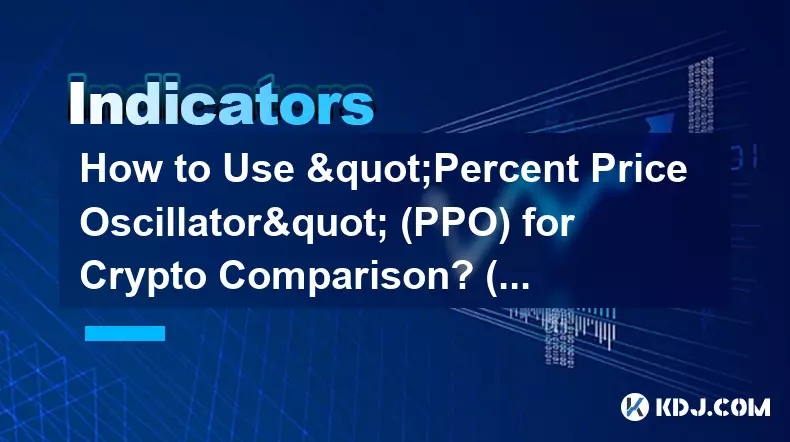
How to Use "Percent Price Oscillator" (PPO) for Crypto Comparison? (Strategy)
Feb 01,2026 at 01:59am
Understanding PPO Mechanics in Volatile Crypto Markets1. The Percent Price Oscillator calculates the difference between two exponential moving average...
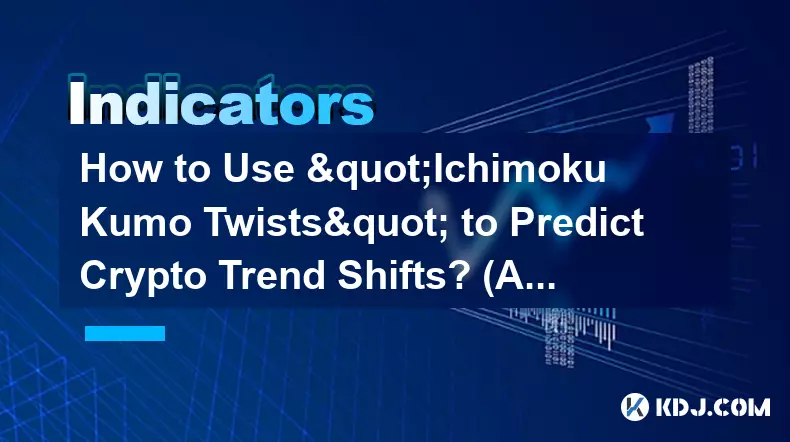
How to Use "Ichimoku Kumo Twists" to Predict Crypto Trend Shifts? (Advanced)
Feb 01,2026 at 10:39am
Understanding the Ichimoku Kumo Structure1. The Kumo, or cloud, is formed by two boundary lines: Senkou Span A and Senkou Span B, plotted 26 periods a...
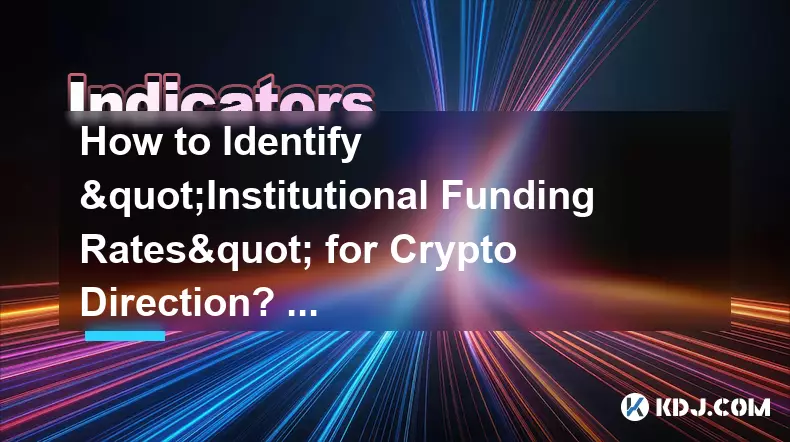
How to Identify "Institutional Funding Rates" for Crypto Direction? (Sentiment)
Feb 01,2026 at 07:20am
Understanding Institutional Funding Rates1. Institutional funding rates reflect the cost of holding perpetual futures positions on major derivatives e...
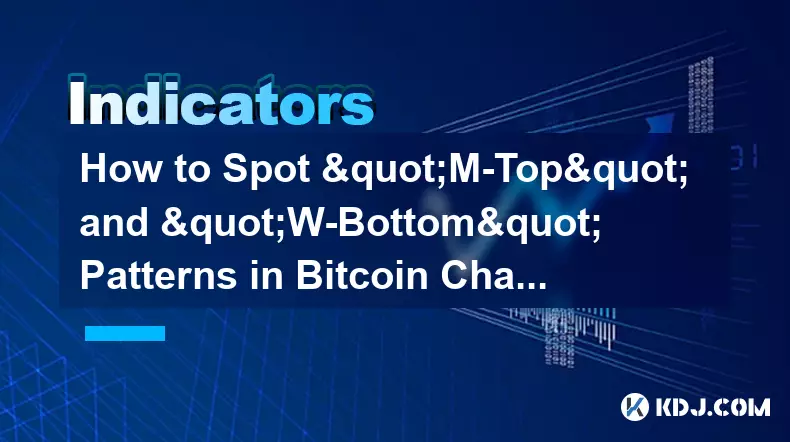
How to Spot "M-Top" and "W-Bottom" Patterns in Bitcoin Charts? (Classic TA)
Feb 01,2026 at 05:59am
Understanding M-Top Formation Mechanics1. An M-Top emerges after a sustained bullish phase where Bitcoin price reaches a local peak, pulls back, ralli...

How to Use "Dynamic Support and Resistance" for Crypto Swing Trading? (EMA)
Feb 01,2026 at 12:20am
Understanding Dynamic Support and Resistance in Crypto Markets1. Dynamic support and resistance levels shift over time based on price action and movin...

How to Use "Negative Volume Index" (NVI) to Track Crypto Smart Money? (Pro)
Feb 01,2026 at 02:40am
Understanding NVI Mechanics in Crypto Markets1. NVI calculates cumulative price change only on days when trading volume decreases compared to the prio...

How to Use "Percent Price Oscillator" (PPO) for Crypto Comparison? (Strategy)
Feb 01,2026 at 01:59am
Understanding PPO Mechanics in Volatile Crypto Markets1. The Percent Price Oscillator calculates the difference between two exponential moving average...

How to Use "Ichimoku Kumo Twists" to Predict Crypto Trend Shifts? (Advanced)
Feb 01,2026 at 10:39am
Understanding the Ichimoku Kumo Structure1. The Kumo, or cloud, is formed by two boundary lines: Senkou Span A and Senkou Span B, plotted 26 periods a...

How to Identify "Institutional Funding Rates" for Crypto Direction? (Sentiment)
Feb 01,2026 at 07:20am
Understanding Institutional Funding Rates1. Institutional funding rates reflect the cost of holding perpetual futures positions on major derivatives e...

How to Spot "M-Top" and "W-Bottom" Patterns in Bitcoin Charts? (Classic TA)
Feb 01,2026 at 05:59am
Understanding M-Top Formation Mechanics1. An M-Top emerges after a sustained bullish phase where Bitcoin price reaches a local peak, pulls back, ralli...
See all articles





















![THIS IS THE HARDEST COIN TO GET [POLY DASH] THIS IS THE HARDEST COIN TO GET [POLY DASH]](/uploads/2026/01/31/cryptocurrencies-news/videos/origin_697e0319ee56d_image_500_375.webp)




















































